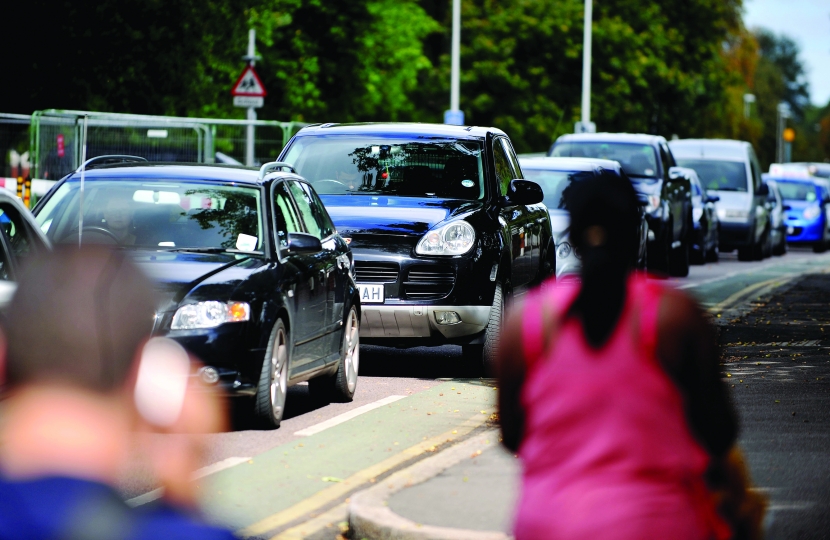
Wolverhampton North East MP Jane Stevenson has welcomed news that £500,000 in Government funding will be invested in the city’s roads.
The funding will help cut congestion, boost safety and reduce journey times and emissions – a commitment set out in the Government’s recently announced Transport Decarbonisation Plan.
The funds can be used by Wolverhampton Council to repair existing equipment and modernise traffic signals. Improved signal operations will reduce traffic queues and provide better facilities for pedestrians and cyclists.
Jane said: “Transport plays a vital part in helping our city to recover from the pandemic by supporting jobs, the economy and the environment. So I welcome the announcement that Wolverhampton will receive £500,000 in new funding to improve our roads and cut congestion.
“The improvements that this funding will go towards will also boost safety and reduce journey times and emissions. All of these improvements will be very welcome in our city, as they will make a real difference to the experience of drivers, cyclists, pedestrians and all road users.”
Transport Secretary Grant Shapps MP said: “Whether you’re a motorist, cyclist or pedestrian, every road user across our country deserves the best possible journey. That’s why, despite already having some of the best and safest roads in the world, this Government is providing millions of pounds to improve them further still.
“This vital funding and work will cut journey times for millions of people, reduce emissions and keep the UK at the forefront of technological developments in roads maintenance, as we continue to invest in local economies and build back both better and greener from the pandemic.”
In addition to this important new funding, the Government has also published findings from a new initiative to speed up research into new and innovative ways to fix potholes.
The cutting-edge Digital Information Brokerage (DIB) will encourage work with small and medium sized businesses outside of the transport sector to discover new technologies to speed-up pothole repairs.
The DIB has already made significant discoveries in this area, including using materials such as graphite nanoparticles to reduce cracks in the road and bio-bitumen to create environmentally friendly surfaces. It also is working on robot technology that will minimise risk to road maintenance workers.
The Government already supports the use of advanced technology like drones to spot road defects and has backed 3D printing to rapidly repair road cracks. The Government has also announced a new data standard for local road condition monitoring, which will allow councils to gain more accurate and useful data so that road repair can be quicker and more effective.
ENDS


